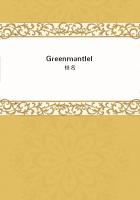Hedrick Madison's eyes were not of marble; his heart was not flint nor his skin steel plate: he was flesh and tender; he was a vulnerable, breathing boy, with highly developed capacities for pain which were now being taxed to their utmost. Once he had loved to run, to leap, to disport himself in the sun, to drink deep of the free air; he had loved life and one or two of his fellowmen. He had borne himself buoyantly, with jaunty self-confidence, even with some intolerance toward the weaknesses of others, not infrequently displaying merriment over their mischances; but his time had found him at last; the evil day had come. Indian Summer was Indian for him, indeed: sweet death were welcome; no charity was left in him. He leaped no more, but walked broodingly and sought the dark places. And yet it could not be said that times were dull for him: the luckless picket who finds himself in an open eighty-acre field, under the eye of a sharpshooter up a tree, would not be apt to describe the experience as dull. And Cora never missed a shot; she loved the work; her pleasure in it was almost as agonizing for the target as was the accuracy of her fire.
She was ingenious: the horrible facts at her disposal were damaging enough in all conscience: but they did not content her.
She invented a love-story, assuming that Hedrick was living it: he was supposed to be pining for Lolita, to be fading, day-by-day, because of enforced separation; and she contrived this to such an effect of reality, and with such a diabolical affectation of delicacy in referring to it, that the mere remark, with gentle sympathy, "I think poor Hedrick is looking a little better to-day," infallibly produced something closely resembling a spasm. She formed the habit of never mentioning her brother in his presence except as "poor Hedrick," a too obvious commiseration of his pretended attachment--which met with like success. Most dreadful of all, she invented romantic phrases and expressions assumed to have been spoken or written by Hedrick in reference to his unhappiness; and she repeated them so persistently, yet always with such apparent sincerity of belief that they were quotations from him, and not her inventions, that the driven youth knew a fear, sometimes, that the horrid things were actually of his own perpetration.
The most withering of these was, "Torn from her I love by the ruthless hand of a parent. . . ." It was not completed; Cora never got any further with it, nor was there need: a howl of fury invariably assured her of an effect as satisfactory as could possibly have been obtained by an effort less impressionistic.
Life became a series of easy victories for Cora, and she made them somehow the more deadly for Hedrick by not seeming to look at him in his affliction, nor even to be aiming his way: he never could tell when the next shot was coming. At the table, the ladies of his family might be deep in dress, or discussing Mr. Madison's slowly improving condition, when Cora, with utter irrelevance, would sigh, and, looking sadly into her coffee, murmur, "Ah, FOND mem'ries!" or, "WHY am I haunted by the dead past?" or, the dreadful, "Torn from her I love by the ruthless hand of a parent. . . ."
There was compassion in Laura's eyes and in his mother's, but Cora was irresistible, and they always ended by laughing in spite of themselves; and though they pleaded for Hedrick in private, their remonstrances proved strikingly ineffective. Hedrick was the only person who had ever used the high hand with Cora: she found repayment too congenial. In the daytime he could not go in the front yard, but Cora's window would open and a tenderly smiling Cora lean out to call affectionately, "Don't walk on the grass--darling little boy!" Or, she would nod happily to him and begin to sing:
"Oh come beloved, love let me press thee, While I caress thee In one long kiss, Lolita. . . . "
One terror still hung over him. If it fell--as it might at any fatal moment--then the utmost were indeed done upon him; and this apprehension bathed his soul in night. In his own circle of congenial age and *** he was, by virtue of superior bitterness and precocity of speech, a chief--a moral castigator, a satirist of manners, a creator of stinging nicknames; and many nourished unhealed grievances which they had little hope of satisfying against him; those who attempted it invariably departing with more to avenge than they had brought with them. Let these once know what Cora knew. . . . The vision was unthinkable!
It was Cora's patent desire to release the hideous item, to spread the scandal broadcast among his fellows--to ring it from the school-bells, to send it winging on the hot winds of Hades! The boys had always liked his yard and the empty stable to play in, and the devices he now employed to divert their activities elsewhere were worthy of a great strategist. His energy and an abnormal ingenuity accomplished incredible things: school had been in session several weeks and only one boy had come within conversational distance of Cora;--him Hedrick bore away bodily, in simulation of resistless high spirits, a brilliant exhibition of stagecraft.
And then Cora's friend, Mrs. Villard, removed her son Egerton from the private school he had hitherto attended, and he made his appearance in Hedrick's class, one morning at the public school.
Hedrick's eye lighted with a savage gleam; timidly the first joy he had known for a thousand years crept into his grim heart.
After school, Egerton expiated a part of Cora's cruelty. It was a very small part, and the exploit no more than infinitesimally soothing to the conqueror, but when Egerton finally got home he was no sight for a mother.
Thus Hedrick wrought his own doom: Mrs. Villard telephoned to Cora, and Cora went immediately to see her.














